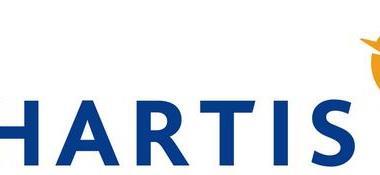Insurers say they will have to raise premiums by 50% in some lines under new regime
Members of Europe’s biggest risk management association are concerned that stiff capital requirements under Solvency II will affect the availability of insurance for large corporate risks.
“The main goal of Solvency II is to protect policyholders’ interests” says Peter den Dekker, President of the Federation of European Risk Management Associations (Ferma), “and we represent the largest policyholders in Europe. We have serious concerns that excessive levels of capital requirements as they are currently stated by the Committee of European Insurance and Occupational Pensions Supervisors (CEIOPS) will affect the availability of insurance cover for medium and large European businesses.
“The fact that insurance companies are concerned that they will have to raise premium by 20% for non-life insurance is a notable development. However, our main concern is the potential reduction in the number of insurers capable of covering our risks. This could force us to retain more risks on our balance sheet, impacting our ability to invest and remain competitive in a global economy.”
FERMA shares the views expressed in the recent report published by the European Insurance Association entitled “Why excessive capital requirements can harm consumers and the economy”.
Added Den Dekker: “We believe, as stated in the report, that the lessons of the financial crisis which impacted the banking sector cannot be translated to the insurance sector. Insolvencies are much less frequent and well handled by market regulators.”
Increasing capital (by 30 to 50% according to the report) will not necessarily bring better security particularly for catastrophe risks, but will certainly have an impact on premium costs (up to 50% for certain lines of business) and product availability, according to Ferma.
In the absence of adequate choice in the commercial insurance market, large policyholders will have to use alternative solutions to cover their risks, said Ferma. “In many cases this would normally be achieved by an increased use of their captive (re)insurance companies.”
Impact on captives
Ferma is also concerned about the effect of Solvency II on captives.
Ferma believes that the specific nature of captives should adequately be recognised in Solvency II. The formulas for calculation of capital requirements and corporate governance principles need to be simplified and aligned to the captive business models. The proportionality principle should also apply to captive undertakings, said the association.
Ferma is concerned that under the present CEIOPS project most captives will be excluded from access to these simplification measures. This could result in a reduction of the number of captive (re)insurance companies, which it said, have proven to be essential risk management and risk financing tools for large businesses.
A balance is required, said Den Dekker: “We continue our discussions with CEIOPS and the European Commission on both the general impact on the insurance market and the captive industry. Providing solutions to the European Commission is something insurers should be able to do better!” Ferma is in positive discussions with the European Commission and is currently proposing solutions to protect the captive (re)insurance companies’ interests. We trust that the European Commission will be able to balance Solvency II requirements in a way that the real economy will not be affected and our members will still be able to be competitive.”




















No comments yet